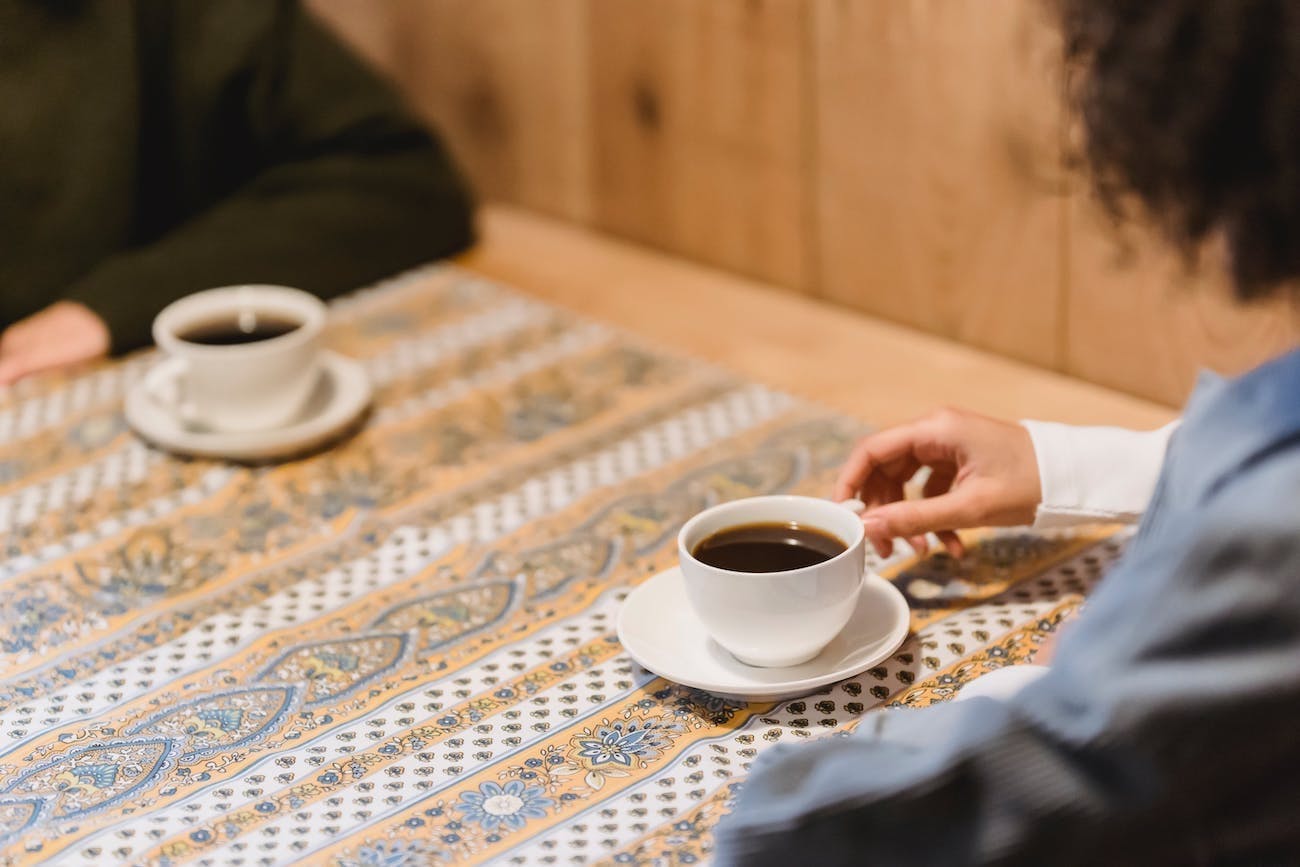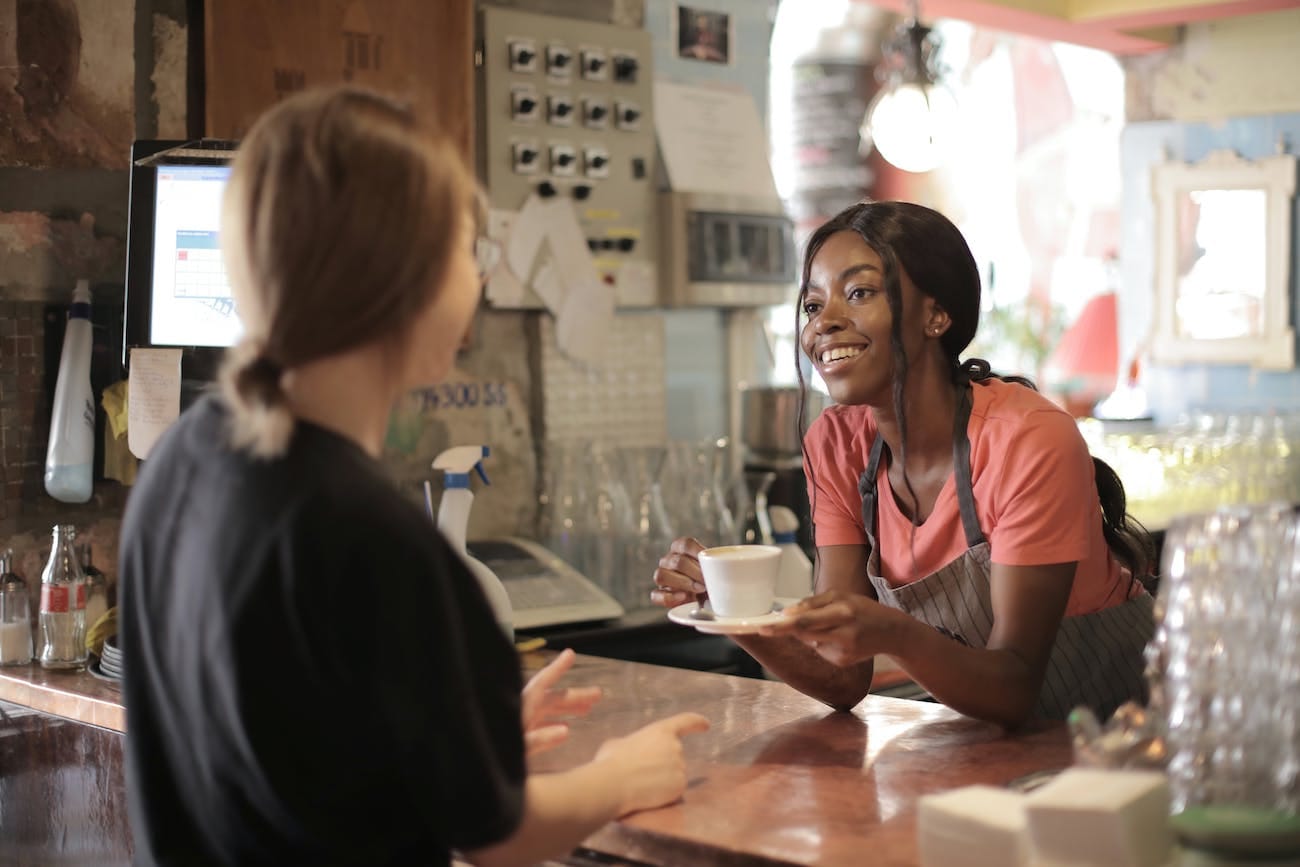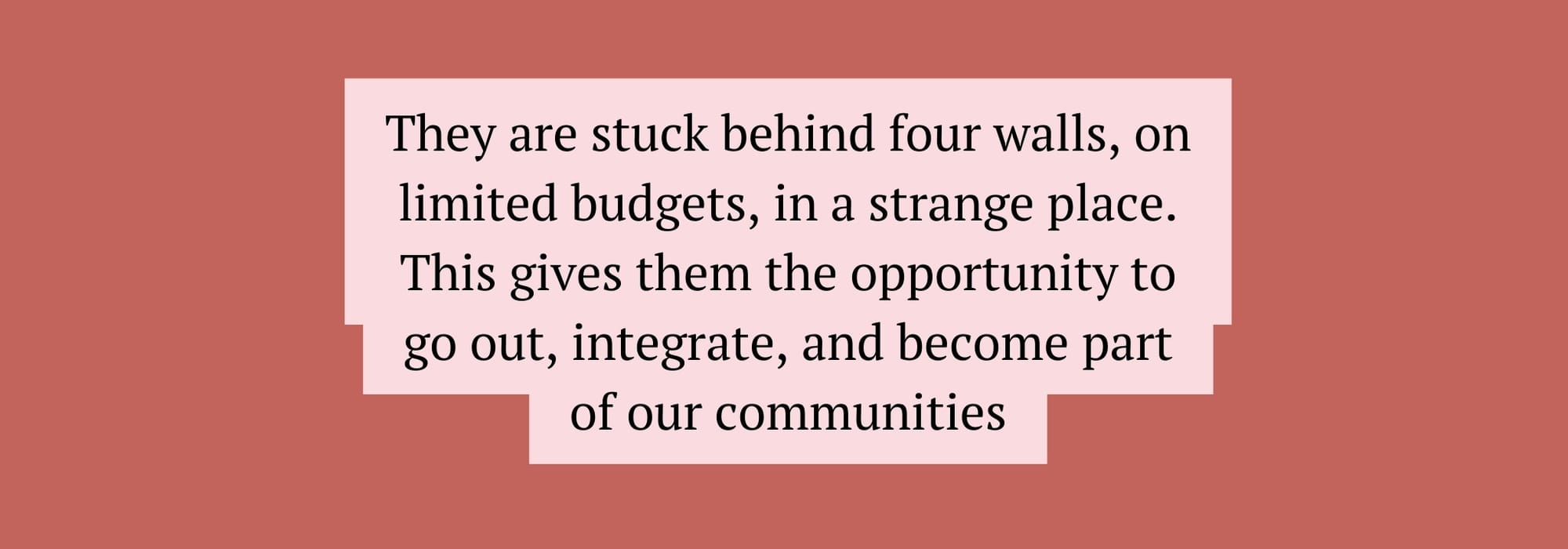Meet the woman behind the café that is changing lives
updated on Mar 11, 2024

At her café in Warwickshire, Farida Butt is serving a regular side order of English lessons to help refugees begin a new life
At first glance, Farida Butt’s cafe in Kenilworth might seem like just another dessert joint. But, step inside Milk and Mocha on a Tuesday morning, and you’ll find a group gathered in the corner, practising a range of simple English phrases that could make all the difference to them calling the UK home.
Many have fled war-torn countries and are living in hotels near this small Warwickshire town, waiting to find a more permanent home. They have few belongings, limited budgets, and can’t speak the language.
Farida, 46, previously worked at a refugee and migrant centre in nearby Coventry, witnessing firsthand the challenges asylum seekers face. When she and her family opened Milk and Mocha during the pandemic – no mean feat in itself – the mum-of-four’s attention turned to refugees based in hotels near the town, and how exploring how she could help them.
“I’m from Coventry originally, but lived in Italy for 18 years – hence my love of coffee and gelato – where I taught English as a foreign language. I had stopped teaching after moving back, but my experience meant I could do something to help, so I started offering free English classes.”
The sessions are informal, and are as important for providing some sense of normality and community as they are for teaching language, she says.
“Here, they can access a space which is comfortable and safe. We offer a free coffee in the morning when they come, and the whole experience gives them some dignity.”

Farida runs two sessions a week where she and other volunteers teach spoken and written English, giving those who attend – including refugees from Iraq, Kurdistan, and Syria, and immigrants from Hong Kong – the chance to learn basic phrases for everyday life. She also offers space for independent study, and points out that it’s not just parents who benefit, but their children, too. “It’s simple things, like going to the doctor’s and being able to communicate, or going to school parents’ evening.”
Yet the classes extend far beyond simply teaching a language, she says, and are about giving self-respect back to people who have lost everything.
“Some people talk as if these guys are living a great life in a hotel, but think about how you feel once you’ve been in a hotel for a week, 10 days, two weeks – you want home,” Farida says. “These people don’t have that. They are stuck behind four walls, on limited budgets, in a strange place. This gives them the opportunity to go out, integrate, and become part of our communities.”
That integration is clear at a fundraiser held at the cafe – the second Farida has organised – to fund courses, such as food hygiene, to help refugees gain employment when permitted.
On a quiet Monday night, the cafe is brought to life with a Kurdish dinner cooked by women who welcome any opportunity to escape their hotel rooms, and feed people their traditional dishes.
“It gives them the opportunity to prepare the food for the evening, having the dignity of cooking for others as they would have done in their own homes,” says Farida.
In the evening, we listen to a powerful poem by one man, traditional music played by another, before dining on dishes like shifta and dolma, followed by a Kurdish biryani. By the end, everyone is on their feet learning Kurdish dancing.
One of the evening’s cooks, Avin, nervously tells the room her own story, stumbling over her newly-learned English words as she tells how she, her husband, and her children left Kurdistan in 2015, travelling across Europe to the UK where they have been living in a hotel for a year.
“We get fed, but we have no dignity,” she says. “In the future, I would like to see my children get a good education and follow their dreams.”
Another woman shows me pictures of the city in Kurdistan that she fled to come here, telling me how she eventually wants to make a home for herself in the UK, and start her own business. Farida says the tales she has heard bring into stark relief the trauma many refugees have been through.
“One Eritrean lady was speaking Turkish, and when I asked her how she could speak it fluently, she told me it was because she was stuck there for three years. It’s an eye-opener when you talk to people – we just don’t realise the journeys some of them have gone through to get to safety.”

The money raised will help put 25 people through courses, Farida tells us. But she’s not stopping there. She already takes some students out to sample new experiences, from taking a bus to visiting nearby arts centres and yoga classes, and has started a CIC (Community Interest Company) called Education for All, in the hope she can get funding to do more.
Since she started her classes last January, she has recruited volunteer helpers, and also hopes to set up workshops to help with CVs, job interview practice, and more – anything that will help people who have lost everything rebuild a life for themselves, and regain the pride they have lost.
For Farida, the crux is quite simple. “What we’re doing is trying to make the invisible visible.”
And she has certainly done that, in all the right ways.

